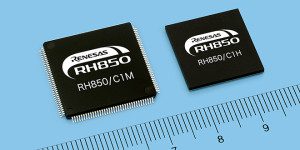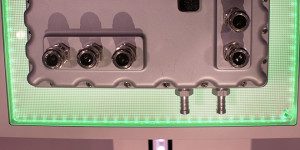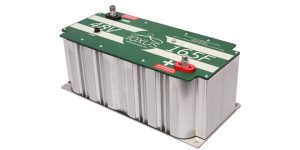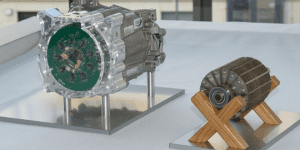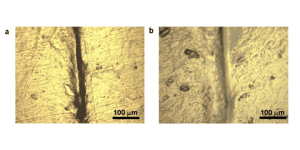Renesas Electronics has announced the new RH850/C1x series of 32-bit microcontrollers (MCUs), designed for motor control in hybrid and electric vehicles. The new RH850/C1x devices can be used with the RAA270000KFT RH850 family power supply management IC (PMIC), which integrates into one device all the power supply systems required for MCU operation, two external sensor… Read more »
Search Results Found For: "ON Semiconductor"
$55 million in new federal funding for vehicle R&D, 19 EV projects
The DOE has announced $55 million in new funding for 31 projects to accelerate R&D of vehicle technologies to improve fuel efficiency and reduce costs. 19 of the new projects are aimed at meeting the goals of the EV Everywhere Grand Challenge, which seeks to make the US auto industry the first to produce plug-in… Read more »
New report: Wide bandgap technology can make power conversion 90% more efficient
Wide Bandgap (WBG) semiconductor technologies are attracting a lot of attention, and research funding. In January, the Obama administration selected a consortium of businesses and universities to lead an innovation institute focused on WBG materials. Japan and the UK are also funding R&D in the field. A new report from Lux Research, Silicon vs. WBG:… Read more »
CHARGED Electric Vehicles Magazine Issue 13 – April 2014
Subscribe Now Trouble viewing? Read the features inside here. Featuring: The Tech Phinergy CEO explains aluminum-air batteries for 1,000-mile range-extended EVs A closer look at the semiconductor switch Wildcat’s new copper fluoride cathode material offers 2.5x more capacity than today’s battery tech The Vehicles The Buckeye Bullet: A student-built EV that’s racing towards 400 mph… Read more »
Freescale’s new battery sensor combines MCU and CAN with three-channel analog front end
Freescale Semiconductor (NYSE:FSL) has announced a new battery sensor that it says is the first to combine three measurement channels, a 16/32-bit MCU, and a CAN protocol module in a single package. The MM9Z1J638 battery sensor measures key battery parameters for monitoring state of health (SOH), state of charge (SOC) and state of function (SOF)… Read more »
Ioxus announces new single-piece housing for its ultracapacitors
Ultracapacitor pioneer Ioxus has announced the launch of a series of module systems for a single-piece extruded housing for use with all of its axial ultracapacitors. The iMOD X-Series allows for every cell to be in thermal contact with the outside of the housing, allowing for even heating and cooling, as well as reduced heat… Read more »
MotorBrain: a compact, lightweight motor system with no rare earths
The European MotorBrain project has presented a prototype of a lightweight electric motor system that integrates the motor, gear drive and inverter, and requires no rare earth metals. The prototype motor system is three quarters the size of models from the beginning of the project in 2011, and, at less than 77 kg (170 lbs),… Read more »
DOE announces $50 million for vehicle R&D funding, releases plug-in progress report
The DOE will award $49.4 million in new funding for projects that accelerate research and development of new vehicle technologies. The announcement identifies 13 areas of interest, of which 7 are described as “critical technologies” to meet the EV Everywhere Grand Challenge, which has a goal of making EVs more affordable and convenient to own… Read more »
NC State University to lead new institute for next-generation power electronics
President Obama has announced the selection of a consortium of businesses and universities to lead a manufacturing innovation institute for next-generation power electronics. Last May, the President committed $200 million in federal funding to three new regional hubs, designed to bridge the gap between applied research and product development, and launched a competition to select… Read more »
Scientists invent self-healing battery electrode
Researchers from Stanford University and the DOE’s SLAC National Accelerator Laboratory have developed a battery electrode that heals itself, a very useful trick indeed. “Self-healing is very important for the survival and long lifetimes of animals and plants,” said Chao Wang, one of two principal authors of the paper, which appeared in the latest issue… Read more »




